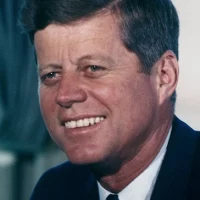Afghanistan has had a long history of living under foreign rule. Once a protectorate of the British Empire, Afghanistan became fully independent in 1919, but its vulnerable monarchy led by King Zahir Shah was unable to unite the country’s many ancestral tribes into a central government. This set up the conditions for internal political instability. The monarchy… Read More " The Afghan Revolution of 1978: Invitation to Invasion"
To be Young, Rich and Ambassador to Paris in the ’50s
C. Douglas Dillon was a politician and diplomat who served as U.S. Ambassador to France in the critical post World War II period, 1953-1957, and later as Under Secretary of State and Treasury Secretary. Son of a wealthy investment banker, Dillon graduated from Groton and Harvard, served in the U.S. Navy during World War II,… Read More "To be Young, Rich and Ambassador to Paris in the ’50s"
CNN, Tanks, and Glass Walls: The August 1991 Coup
In August of 1991, hard-liners opposed to Soviet President Mikhail Gorbachev initiated a coup attempt to overthrow him. The rebellion occurred in part because of financial strife as the Soviet Union transformed quickly from a statist to a market-based economy. Long lines formed for essential goods including medicine and fuel, and grocery shelves were empty.… Read More "CNN, Tanks, and Glass Walls: The August 1991 Coup"
The Rough Road to Moscow for Malcolm Toon
Malcolm Toon was a fluent Russian speaker and one of the State Department’s top experts on the Soviet Union during the Cold War. He was ambassador to Czechoslovakia, Yugoslavia, Israel, and the Soviet Union. Toon was characterized in The New York Times in 1978 as “one of the most influential of the postwar ambassadors in… Read More "The Rough Road to Moscow for Malcolm Toon "
After Fidel Castro ousted Cuban strongman Fulgencio Batista, expropriated American economic assets and developed links with the Soviet Union, President Eisenhower authorized the CIA in March 1960 to develop a plan to overthrow Castro. The agency trained and armed Cuban exiles to carry out the attack. Shortly after his inauguration, John F. Kennedy learned of the invasion plan, concluded… Read More "New President, Bad Plan: the Bay of Pigs Fiasco"
A Man for all Transitions: Thomas Reeve Pickering
Considered by many the most accomplished diplomat of his generation, Thomas Reeve Pickering served as U.S. Ambassador to Jordan, Nigeria, El Salvador, Israel, India, and Russia. While serving as the U.S. Permanent Representative to the United Nations The New York Times described him as “arguably the best-ever U.S. representative to that body.” He was Assistant…
Soft Power in a Cold War: Challenges of Reaching out to the Soviets
The “Iron Curtain” was a term used to denote the efforts of the Union of Soviet Socialist Republics to block its citizens from contact with the West. It persisted from the end of World War II until the end of the Cold War. Throughout those decades, the U.S. endeavored to breach the Curtain and reach… Read More "Soft Power in a Cold War: Challenges of Reaching out to the Soviets"
The 1991 Coup Against Mikhail Gorbachev
In August 1991, hard-line members of the Communist Party of the Soviet Union (CPSU) who opposed President Mikhail Gorbachev’s reforms and decentralization of government powers tried to overthrow him. The short-lived coup attempt is considered pivotal in the rise of Boris Yeltsin and the eventual breakup of the USSR. The attempt took place at a… Read More "The 1991 Coup Against Mikhail Gorbachev"
Basketball: the Fifth Basket of the Helsinki Final Act
The Helsinki Final Act, an agreement signed by 35 nations at the Conference on Security and Cooperation in Europe (CSCE) on August 1, 1975, addressed a spectrum of global problems and had a lasting impact on U.S.-Soviet relations. The Helsinki Final Act dealt with a variety of issues divided into four “baskets.” The first basket… Read More "Basketball: the Fifth Basket of the Helsinki Final Act"
Negotiating the Limited Test Ban Treaty (LTBT)
Due to rising concern about radioactive fallout from increasingly big nuclear tests underwater, in space, in the atmosphere and underground, as well as concern over the burgeoning arms race between NATO and Warsaw Pact countries, the US, UK, and USSR decided to negotiate a test-ban treaty. These concerns became more pronounced after the United States… Read More "Negotiating the Limited Test Ban Treaty (LTBT)"

